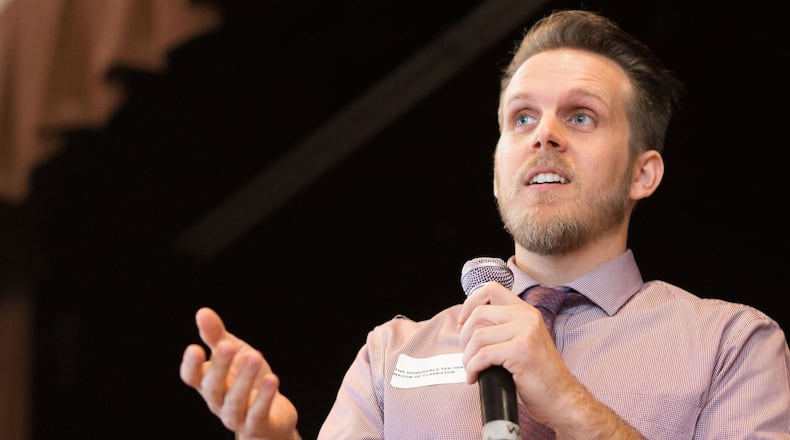The city of Clarkston is pressing ahead with a vote as early as next week to make it the first city in Georgia to decriminalize marijuana despite warnings from Gov. Nathan Deal and law enforcement officials that it would violate state and federal law.
The city held an initial hearing last week on Mayor Ted Terry's plan to make possession of less than 1 ounce of marijuana a ticket-only offense, and the full city council could vote on the policy at its May 3 meeting. Terry, meanwhile, said he's tried to set up a meeting with Deal to sell him on the idea as part of a criminal justice overhaul that was the centerpiece of his first term in office.
“I think that if he stopped for a minute and looked at the evidence, and past the political rhetoric, he will see that this policy can only strengthen his criminal justice reform legacy,” said Terry.
Terry said Clarkston will argue that it has "concurrent jurisdiction" with the state over low-level drug offenses. Clarkston's plan would lay out a fee schedule that could charge as little as $5 in Municipal Court for the first offense. That's down from a fine that generally ranges from $600 to $1,000.
Other Georgia cities have flirted with the idea, but they’ve failed to gain traction. An effort in Athens sputtered recently when the city attorney concluded that state laws that make possession of the drug a misdemeanor crime take precedence over local ordinances. Chuck Spahos, the executive director of the Prosecuting Attorneys’ Council of Georgia, seconded that argument as did Georgia Bureau of Investigation director Vernon Keenan.
"They can't decriminalize marijuana," Keenan said Tuesday. "Only state legislators and Congress can do that."
Deal championed legislation that diverts more low-level drug offenders from lengthy prison sentences and legalized the use of a form of medical marijuana, but he’s firmly against an expansion that would legalize marijuana for recreational use. He made clear that he, too, would also oppose any effort to decriminalize the drug.
"We should not have any municipality or jurisdiction of state government saying that they're willing to flaunt the law to downgrade or excuse what is otherwise criminal conduct," Deal told WABE of Clarkston's plan last week. "I do not approve of that and I do not agree with the posture they are apparently trying to take."
Terry said many officers around the state already "de-prioritize" enforcement of marijuana violations and that he simply wants to codify the practice. In Clarkston, for one, police officials counted 77 marijuana cases in the last two years involving less than an ounce of marijuana. Some 38 were given a citation and released; none were ultimately sent to prison.
Clarkston, a DeKalb city of roughly 13,000 with a long progressive streak, seems ready for a fight.
“The current drug policy on marijuana possession under 1 ounce is simply not working,” Terry said. “I would hope our elected leaders would encourage creativity and innovation in creating a safer and more just society.”
About the Author
The Latest
Featured



